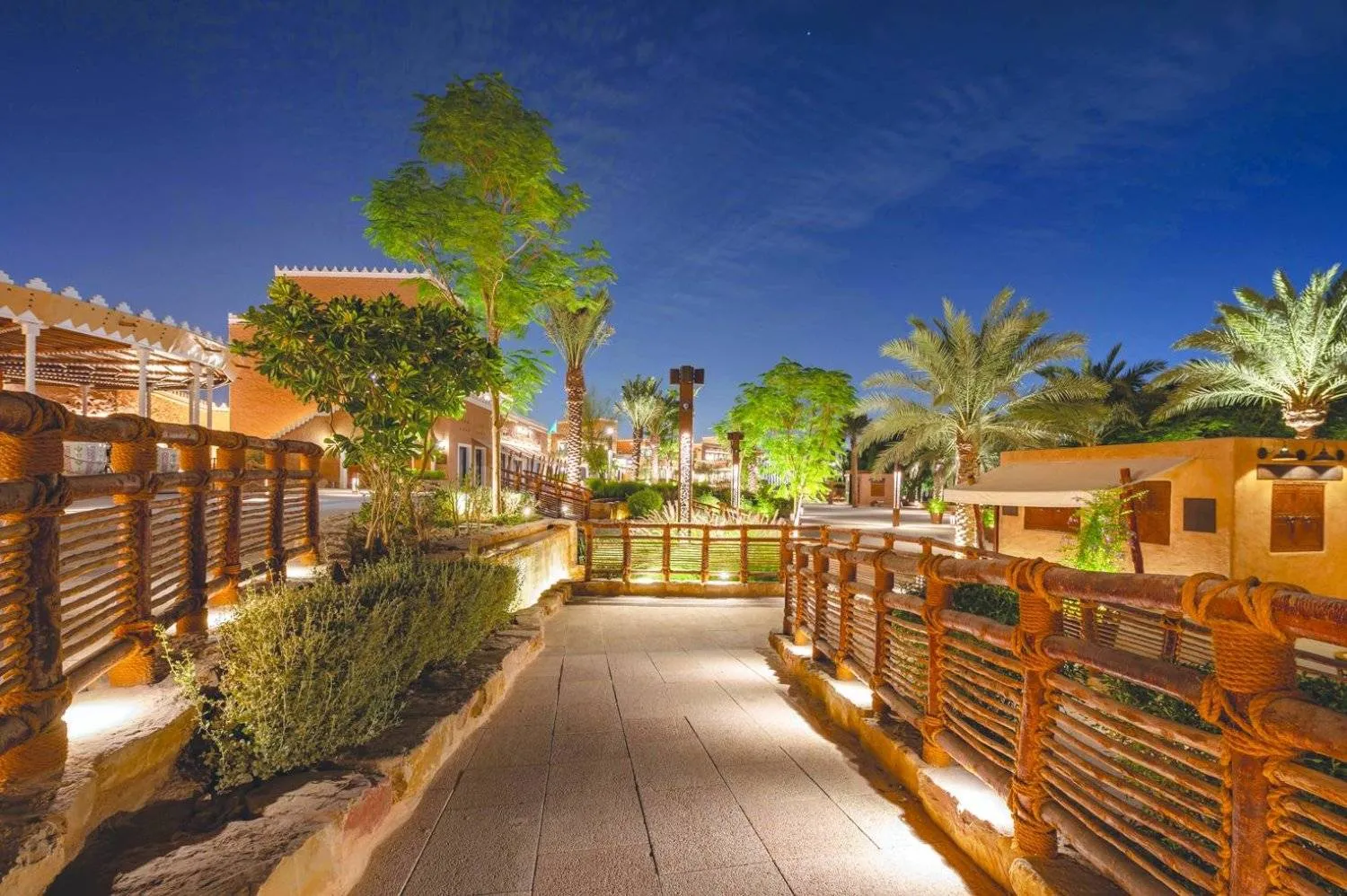Mohamed Saad, President of Diriyah Company, emphasized the company’s steadfast and advanced strides towards executing its comprehensive plans to establish a major tourist destination in Diriyah, located northwest of Saudi Arabia's capital, Riyadh.
The project aims to create a global gathering hub spread over 14 square kilometers, becoming a place to live, work, and entertain approximately 100,000 people by 2030.
Speaking to Asharq Al-Awsat, Saad detailed the company’s ambitious blueprint to essentially develop a new city on this land.
He highlighted that his company is adopting a holistic development model to ensure the establishment of adequate infrastructure to support urban development plans.
These include residential units, office spaces, new hotels, arts and cultural centers, shopping areas, clubs, restaurants, and world-class cafes.
Saad affirmed that these initiatives align with the goals of Saudi Arabia’s national transformation plan, Vision 2030, showcasing Diriyah Development’s role in fostering a vibrant and diverse economy in the Kingdom.
He stressed the importance of having a detailed strategy as the main factor in the success of a large-scale project like Diriyah.
He noted that such planning attracts top talent in architecture, construction, and global services, especially those focusing on sustainable practices, thus aiding in achieving project goals.
Saad added that Diriyah has partnered with over 100 international firms.
“We always welcome collaboration, especially since our project is now considered one of the most attractive in the world,” he said.
Regarding Diriyah’s potential to be both a historic and cultural center while also developing a new city, he highlighted the project's responsibility in careful planning.
“We fully understand the immense responsibility we bear as the developers of the Diriyah project,” he asserted.
“We are committed to a meticulously planned approach, combining a unique blend of celebrating the past, embracing the present, and looking forward to a prosperous future,” he explained.
Saad also stated that Diriyah’s charm lies not only in its cultural significance but also in its historical buildings, some dating back 300 years, showcasing Najdi architectural heritage.
Moreover, he highlighted the importance of a comprehensive investment strategy for Diriyah's success, citing recent developments like the Diriyah Square shopping area and the Royal Opera House.
“We have a comprehensive investment strategy covering all development aspects, from modern infrastructure to tangible assets,” affirmed Saad.
He also noted the upcoming Diriyah Arena that is “set to become one of the largest entertainment and cultural venues in the Middle East, spanning 76,000 square meters with 20,000 seats.”
Saad highlighted investment opportunities in newly opened areas like Al-Turaif and Al-Bujairi waterfront, which have already attracted millions of visitors.
Diriyah’s expansion plans include hotels, residential units, a golf course, and more. Saad announced further massive assets to be unveiled by the end of the year at the Diriyah Outlook 2024 event.
As a project supported by Saudi Arabia’s Public Investment Fund (PIF), Diriyah aims to create job opportunities, expecting to provide around 178,000 positions for Saudi youth across various sectors.
Saad further revealed his company’s aim of attracting 50 million annual visits to support Vision 2030’s goal of tripling the GDP to 10% of Saudi Arabia's economy by 2030, with Diriyah contributing over 70 billion riyals ($18.6 billion).
“We’re creating a place for people to live, work, and enjoy life, committed to boosting prosperity and making a big impact on the economy,” Saad underlined.
Regarding Diriyah’s role and balancing returns with development, Saad said: “Diriyah is a major project owned by the PIF. As a company, we have commercial goals and global partnerships, aiming to provide significant investment opportunities.”
“These projects will generate revenues that contribute to economic and social development,” he confirmed.









